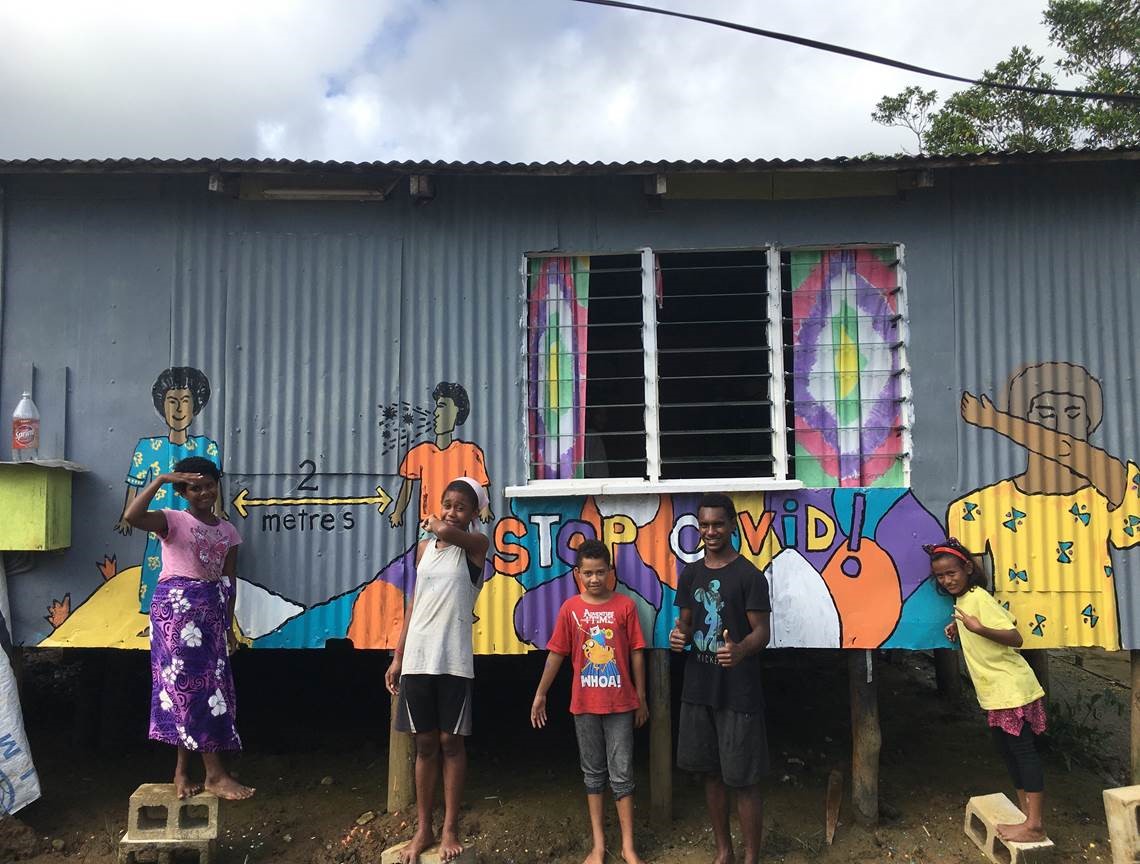Lami, Fiji, 4 June 2020 – Children and youth in Fiji are working closely with local artists to create community murals raising awareness on COVID-19 prevention.
The murals begin with a discussion with the youth group on the impact of the pandemic on young people, how it spreads, key prevention messages and how these could be presented to the community. The artists help the youth design the messages they identified as most important to their community and guide them in completing the murals.
Local artist Lambert Ho said: ‘This brings out restless children and the youth together to raise awareness and discuss openly issues that affect us all. Whether it’s dance, music, visual arts or storytelling, each child can bring to the table his or her own experiences, to share, to engage, to resolve.”
He added: “it brings me immense joy because they get to tell their stories in their own magical ways.”
Murals will be painted in many informal settlements in Fiji by youth and artists in the coming weeks.
The mural painting is part of UN-Habitat’s three month long rapid response support for more than 70 informal settlements to help alleviate the impacts of COVID-19. The project targeting over 9,000 households aims to provide support for water, sanitation and hygiene, isolation facilities and food banks and set up decentralized markets for the urban poor.
The project also promotes behaviour change and awareness raising to improve the knowledge of COVID-19 symptoms, prevention and preparedness. During preliminary field visits to two settlements, many households were unaware of the steps to take if a family member showed symptoms.
UN-Habitat has developed community outreach guidelines that provide practical tips for informal settlements developed with the Ministry of Health and WHO.
UN-Habitat Team Leader for Climate Resilience, Inga Korte, emphasised the importance of community outreach in Fiji.
“We need to make sure that people continue with safety measures such as physical distancing and washing hands, and that we identify champions in each community who will promote safe practices,” she said.
